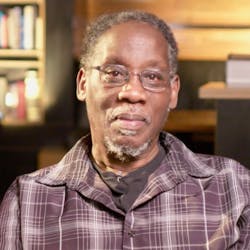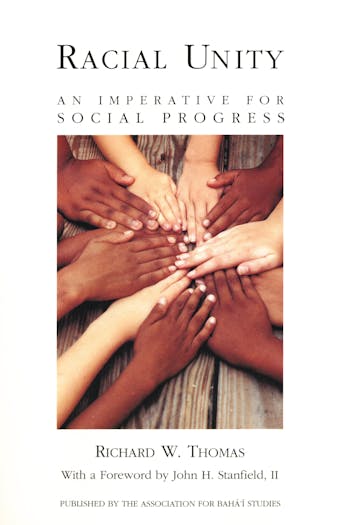Racial Unity: An Imperative for Social Progress
"The title of this book, Racial Unity: An Imperative for Social Progress, originated from a series of lectures I gave at various universities in Canada and the United States during the late 1980s. As a result of long years of teachings about the history of racism, I felt compelled to include the history of "the other tradition" of American race relations, namely: the history of the interracial struggle for racial justice, unity, love, and fellowship." Richard W. Thomas, Preface to the first edition
Author
Richard W. Thomas
Richard Walter Thomas is Professor Emeritus of History at Michigan State University. He has published scholarly works and has given numerous talks, interviews and workshops on issues of race. His poetry has been published in various anthologies, such as Nine Black Poets (1968) and Black Fire (2007). Among the many works he has authored are: Life for Us is what We Make it: Building Black Community in Detroit, 1915-1945 (1992), Racial Unity: An Imperative for Social Progress (1992), Bridging Racial Divides in Michigan's Urban Communities (2002), Lights of the Spirit: Historical Portraits of Black Bahá'ís in North America, 1898-2004 (2006). Racial Unity is recognized as the first publication to use the term "The Other Tradition."

Review
In 1992 the National Spiritual Assembly of the Bahá'ís of the United States published a statement on "The Vision of Race Unity: America's Most Challenging Issue", and in the years since race unity activities undertaken by the North American Bahá'í Community have attracted considerable media attention. Scholarship on Bahá'í responses to issues of race has expanded. Although Race Unity focuses on North America, the existence of similar problems in such other countries as South Africa is acknowledged (although events there, particularly the dismantling of the apartheid legal regime, have considerably overtaken the text). Racism is a global problem, not exclusively a North American one, and Bahá'í Institutions in other countries have conducted education campaigns of their own aimed at mitigating its influence. When Bahá'í Communities elsewhere decide to examine their own responses to this vital issue of race unity, they will of necessity turn to Thomas’ scholarship for inspiration and example.
Graham Hassall, Professor, Victoria University of Wellington

Select Format